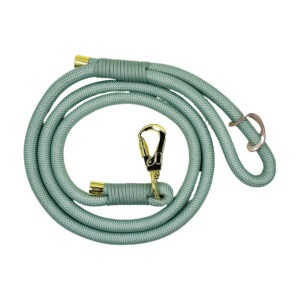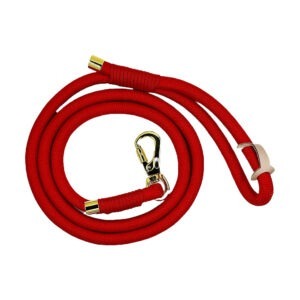Neapolitan Mastiffs are an impressive and powerful breed known for their massive size and protective nature. In order to raise a well-behaved and balanced Neapolitan Mastiff, proper training is essential. This blog article aims to provide you with a comprehensive guide on how to train a Neapolitan Mastiff effectively, taking into consideration their unique characteristics and specific needs.
Understanding the Neapolitan Mastiff
Neapolitan Mastiffs possess several distinctive traits that set them apart from other breeds. Their large, muscular bodies and loose skin give them an imposing appearance, making early socialization crucial. Understanding their temperament and behavior traits is vital for successful training.
Basic Training Techniques
- Importance of early socialization:
- Exposing your Napolitansk mastiff to various environments, people, and animals at an early age helps them develop social skills and reduces the likelihood of behavioral issues.
- Basic commands and obedience training:
- Teaching your Neapolitan Mastiff basic commands like “sit,” “stay,” and “come” establishes a foundation for further training and facilitates communication between you and your dog.
- Housebreaking and crate training:
- Establishing a consistent routine for housebreaking and using positive reinforcement techniques will help your Neapolitan Mastiff understand where and when they should eliminate. Crate training can also be used to provide a safe and comfortable space for your dog.
Training Techniques Specific to Neapolitan Mastiffs
- Handling size and strength during training:
- Neapolitan Mastiffs are strong and powerful dogs, so it’s important to use appropriate handling techniques, such as using a sturdy leash and collar, to maintain control during training sessions.
- Tailoring training to their temperament:
- Neapolitan Mastiffs can be independent and stubborn at times. Employing positive reinforcement methods and using treats or rewards that motivate them will help keep them engaged and responsive during training.
Dealing with Common Behavioral Issues
- Addressing aggression and stubbornness:
- Neapolitan Mastiffs may display aggression or stubbornness if not properly trained. Consistent training, early socialization, and positive reinforcement techniques can help manage and redirect these behaviors.
- Managing excessive barking:
- Neapolitan Mastiffs have a deep bark, and they may be prone to excessive barking. Teaching the “quiet” command and providing mental and physical stimulation can help reduce excessive barking.
- Techniques for positive reinforcement and correction:
- Positive reinforcement, such as praise, treats, and play, is highly effective in training Neapolitan Mastiffs. Avoid harsh punishment and opt for gentle correction methods to maintain a positive training environment.
Avancerad träning
- Training for protection or other specialized roles:
- Neapolitan Mastiffs can excel in protection training or other specialized roles. Enlisting the help of professional trainers experienced in working with large breeds can be beneficial for advanced training.
- Importance of ongoing training and reinforcement:
- Training should be an ongoing process throughout your Neapolitan Mastiff’s life. Regular practice sessions and reinforcement of learned behaviors will help maintain their training and prevent regression.
Training Across Different Life Stages
- Training strategies for puppies, adolescents, and adult dogs:
- Tailoring training techniques to each stage of your Neapolitan Mastiff’s life is essential. Puppies require basic obedience training, while adolescent dogs need continued socialization and reinforcement. Adult dogs may benefit from advanced training and mental stimulation.
- Adjusting training as your dog ages:
- As your Neapolitan Mastiff ages, their exercise needs may change. Adjust the intensity and duration of physical activities accordingly, and continue to provide mental stimulation to keep their minds active.
Exercise and Mental Stimulation
- Ideal types and amounts of physical exercise:
- Neapolitan Mastiffs require regular exercise to maintain their overall health and prevent behavioral problems. Daily walks, play sessions, and engaging activities like agility training can help fulfill their exercise needs.
- Importance of mental stimulation and suggested activities:
- Neapolitan Mastiffs are intelligent dogs that thrive on mental stimulation. Providing puzzle toys, obedience training sessions, and interactive games can help keep their minds sharp and prevent boredom.
Health Considerations in Training
- Common health issues in Neapolitan Mastiffs and their impact on training:
- Neapolitan Mastiffs are prone to certain health conditions, such as hip dysplasia and cherry eye. These conditions can affect their mobility and require adaptations in training techniques. Regular veterinary check-ups are crucial for addressing any health concerns.
- Importance of regular vet check-ups:
- Regular visits to the veterinarian are vital to ensure your Neapolitan Mastiff’s overall health. Routine check-ups help detect and address any medical issues that may impact their training progress.
Slutsats
Training a Neapolitan Mastiff requires patience, consistency, and a tailored approach. By understanding their unique characteristics, employing effective training techniques, and providing ample exercise and mental stimulation, you can raise a well-behaved and happy Neapolitan Mastiff. Remember, training is an ongoing process that strengthens the bond between you and your furry companion.
Some of our latest products...
Vanliga frågor
1. How long does it take to train a Neapolitan Mastiff? Training duration can vary depending on the individual dog and their responsiveness to training methods. Consistency, positive reinforcement, and patience are key factors in achieving desired results.
2. Can I train a Neapolitan Mastiff without professional help? Basic obedience training can be done at home with proper guidance and resources. However, for advanced training or specific roles, seeking professional help from experienced trainers is advisable.
3. Are Neapolitan Mastiffs good with children? Neapolitan Mastiffs can be gentle and affectionate with children if properly socialized and trained. Supervision is essential to ensure a safe and positive interaction between them.
4. Do Neapolitan Mastiffs require a lot of exercise? While Neapolitan Mastiffs are not overly energetic, they still require daily exercise to maintain their physical and mental well-being. Regular walks and engaging activities are recommended.
5. Can Neapolitan Mastiffs be trained to be guard dogs? Neapolitan Mastiffs have natural protective instincts, making them suitable candidates for guard dog training. With proper training and socialization, they can excel in this role.





